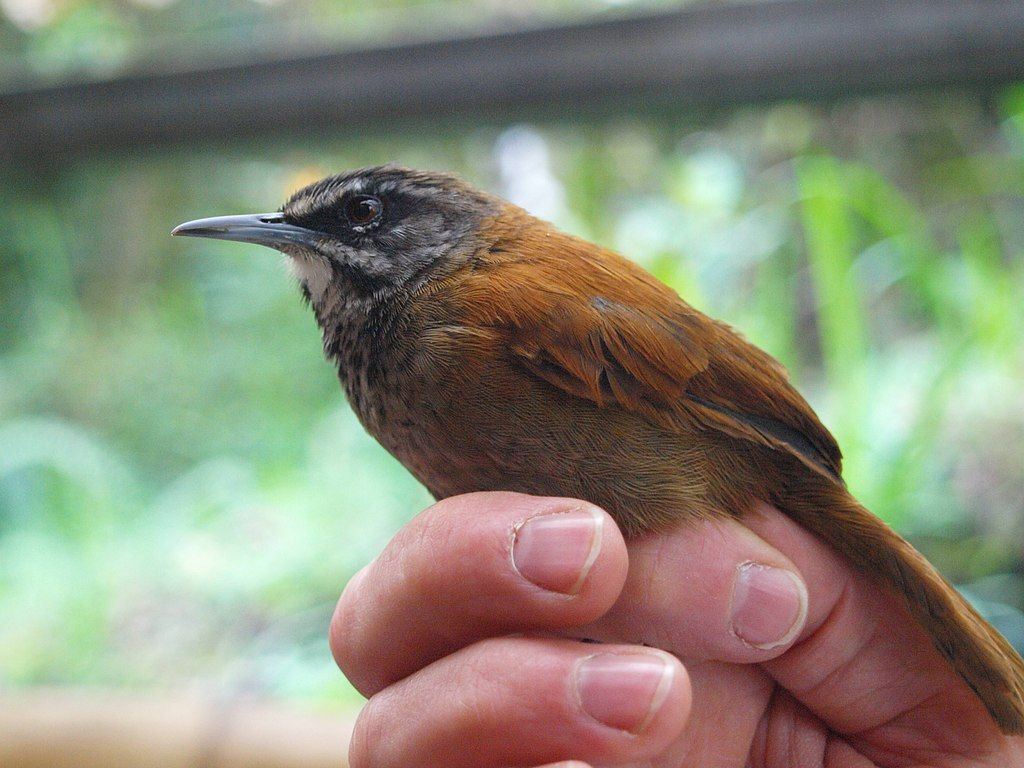
26 April 2023
Eighty days ago at Ecuador’s Bellavista Cloud Forest Reserve our tour group heard this species singing from a thicket and added him — or perhaps a pair of them — to our Life Lists.
The plain-tailed wren (Pheugopedius euophrys) is hard to see but its incredibly loud voice is easy to hear, made doubly loud when a pair sings a complicated duet. The duet below was recorded near Tandayapa, Ecuador, perhaps at Bellavista, while other birds were singing in the background. The plain-tailed wrens drown them out.
Intrigued by the birds’ fast-paced, precise duet, researchers in 2021 studied the birds’ brain waves to find the signal that governed the interchange. Instead of an added signal they discovered that, “the species synchronizes their frenetically paced duets by inhibiting the song-making regions of their partner’s brain as they exchange phrases.” The listener’s brain hears something from the partner that mutes his/her own song-making at just the right moment.
“Think of these birds like jazz singers,” said lead author Melissa Coleman. “Duetting wrens have a rough song structure planned before they sing, but as the song evolves, they must rapidly coordinate by receiving constant input from their counterpart.
“What we expected to find was a highly active set of specialized neurons that coordinate this turn-taking, but instead what we found is that hearing each other actually causes inhibition of those neurons—that’s the key regulating the incredible timing between the two.”
It’s not too far-flung to think of these birds as jazz singers. “There are similar brain circuits in humans that are involved in learning and coordinating vocalizations. [Lead authors] Fortune and Coleman say the results offer a fresh look into how the brains of humans and other cooperating animals use sensory cues to act in concert with each other” just like jazz singers.
Here’s one more duet from Tandayapa, Ecuador. Amazing.
Read more at Good News Network: Duetting Songbirds ‘Mute’ the Musical Mind of Their Partner to Stay in Sync, Researchers Find. (quotes above are from this article.)
See the original study at PNAS: Neurophysiological coordination of duet singing.
(photo from Wikimedia Commons, audio embedded from Xeno Canto; click on the links to see the originals)
Incredible Kate, enjoyed this post. Thanks! Happy Friday!